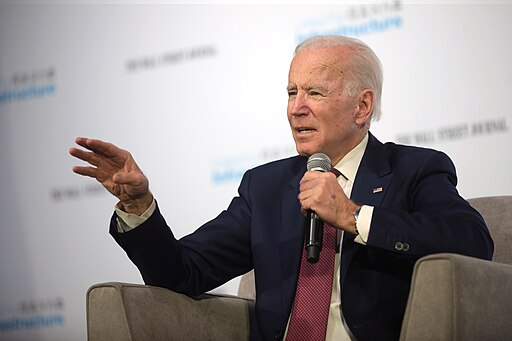The Truth About Biden’s $6 Billion Gift
Approximately 2,300 lives have been lost in Israel and Gaza in recent events that began with violence on Saturday.
The situation has drawn global attention and also raised questions about a recent agreement between the Biden administration and Iran.
Critics argue that the deal involved a significant release of funds to a dangerous groups in the Middle East and might have contributed to the violence
Supporters, on the other hand, maintain that these issues are distinct and that the administration acted appropriately.
Here’s the key information:
What was the agreement?
According to The Hill, at the heart of the controversy is an agreement reached by the Biden administration with Iran to secure the release of five Americans.
The broad outlines of the deal were unveiled in August, with the release of the five Americans occurring in mid-September.
The Biden administration believed that all five Americans had been unjustly detained. Two of them remained unnamed, while the others were identified as Emad Shargi, Morad Tahbaz, and Siamak Namazi.
President Biden announced at the time, “Five innocent Americans who were imprisoned in Iran are finally coming home.”
In return, five Iranians held in the United States were also permitted to depart, and crucially, around $6 billion in previously frozen Iranian assets became accessible.
This money, previously located in South Korea, had been difficult to transfer due to concerns about sanctions violations.
Under the agreement, the funds were moved to Doha, Qatar, where Iran can use them for specific approved purposes.
Furthermore, Iran is not free to spend this money as it wishes. It is supposed to be strictly earmarked for humanitarian needs, food, or medicine purchases.
In essence, the funds in Qatar function as credit; Iranians can place orders for humanitarian goods, and once these goods are delivered to Iran, the purchase price is transferred from the Qatar accounts to the vendors.
State Department spokesperson Matthew Miller emphasized at a September 12 press briefing, “The facts of this arrangement are when this money arrives in these accounts in Qatar, it will be held there under strict oversight by the United States Treasury Department, and the money can only be used for humanitarian purposes. We will remain vigilant in watching the spending of those funds and have the ability to freeze them again if we need to.”
Administration officials have also stressed that none of the funds have been utilized thus far. Consequently, they refute claims that the deal has facilitated Iran’s funding of dangerous anti-American groups.
What are the criticisms?
Broadly, there are two main criticisms: one regarding the funds and another concerning the ethics of the deal.
Critics of the deal argue that the White House’s emphasis on the specific terms and restrictions is disingenuous. They contend that the essential point is that Iran now has access to $6 billion that it did not possess three months ago. Whether the funds are confined to humanitarian purposes is, in their view, irrelevant, as it frees up other money Iran can use for various purposes.
The ethical dilemma surrounds the perception that deals for the return of American citizens may incentivize hostage-taking.
Critics argue that this agreement could be viewed as the largest ransom payment in American history, thereby impacting future negotiations.
Is Iran connected to the recent incident?
The degree of Iran’s involvement in the recent incident depends on one’s perspective. Iran’s support of the group in question is so substantial that it can be seen as complicit in its activities.
Moreover, a Wall Street Journal report claimed that Iranian officials had authorized the attack in a recent meeting in Lebanon. However, this report remains unverified by other news organizations.
Crucially, both the Biden administration and the Israeli government have stated that they lack specific evidence indicating Iran’s planning of the attack.
Can Republicans take action?
They can certainly try. Senate Minority Leader Mitch McConnell and Sen. Tom Cotton introduced a bill to freeze the Iranian funds once more.
The bill, which is concise, explicitly prohibits the release of funds to Iran under the agreement.
McConnell asserted that “The civilized world must re-impose serious consequences on the regime that aids and abets murderous evil against innocent Israelis. The United States must lead that effort by our example, and freezing Iranian assets is an important first step.”
The level of support for this move within Congress is uncertain, and any decision by the Biden administration to refreeze the funds would render this question moot. One argument against refreezing the funds is that it might complicate future hostage negotiations by suggesting that the U.S. could renege on its commitments.





first off Michael Obama is Not a Lady, not even a Girl. There is noway that it could be the best.